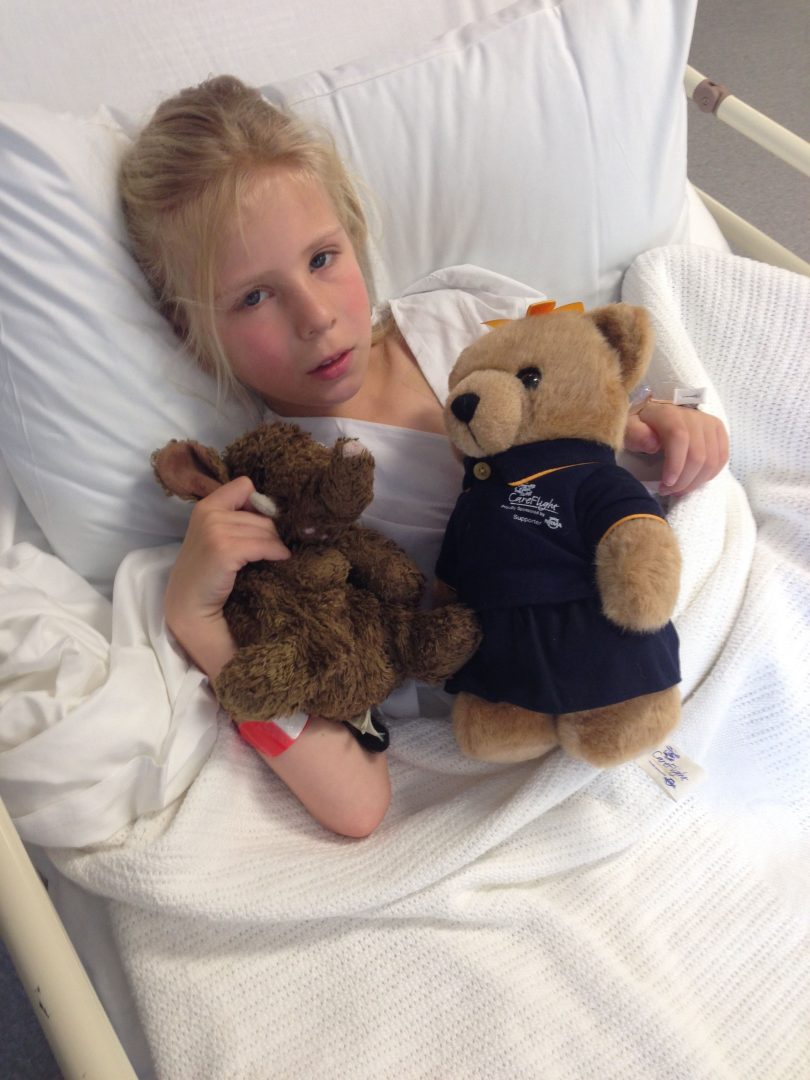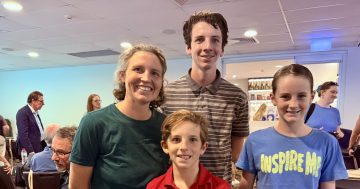
Lily Haskins has overcome her fair share of adversity in life, but that hasn’t stopped her from wanting to dedicate herself to helping others. Photo: Supplied.
Lily Haskins was only six years old when she suffered a cardiac arrest – making her just one of just five per cent of children who survive them.
“She was jumping on the trampoline with her sister and then collapsed,” Lily’s mother Catherine Dunin said.
“Her sister then alerted us to the fact that she had stopped breathing and we started CPR straight away.”
The little girl was in a Sydney hospital for a month.
“They didn’t know what was wrong specifically and couldn’t diagnose her problem,” Catherine recalled.
“I think every specialist in Sydney came to visit her to try and diagnose her. They thought it was a heart problem, but they weren’t sure.”
After she recovered, Lily’s life returned to normal until six months later when she began to feel unwell while swimming laps.
“She said, ‘I don’t feel well mum,’ and I put her on the side of the pool,” Catherine said. Lily was thrown back because her defibrillator shocked her.
“We went to hospital in the ambulance, and because she had the defibrillator, which is like a little computer, they were able to look at her heartbeat and what had happened.
“From that, they were able to diagnose her condition, which was CPVT.”
CPVT (catecholaminergic polymorphic ventricular tachycardia), otherwise known as heart arrhythmia, is a rare congenital heart disease that occurs when the heartbeat’s electrical signals don’t work correctly.
Once diagnosed, Lily was put on the appropriate medication, made the necessary lifestyle changes, and lived a “pretty normal life”.
Lily’s “normal life” includes breaking the cable to her heart twice, which required surgery at ages eight and 10, and undergoing a full replacement of the internal computer helping her heart at age 13. She now takes beta-blocker medication to control her heart rate and minimise the risk of further cardiac arrests. Lily also minimises any activity that increases her pulse and releases adrenaline to her heart.
For Ms Dunin, she considers her family to be very fortunate.
“We were very, very lucky that she survived that cardiac arrest. As the head of ICU in Sydney told us, 95 per cent of kids who suffer a cardiac arrest don’t survive, so we were one of that five per cent,” she said.

A young Lily in hospital. Photo: Supplied.
Now 17, Lily is dedicated to helping others. A recipient of a Young Canberra Citizen of the Year award for her work with people with disabilities, she was also the youngest student at her school to complete a Certificate 3 in Early Childhood and Education.
“After year 12, I’m thinking of going into disability care as a carer or any work really around Canberra which involves disability care,” she said.
“I understand what they go through like hospital visits, and I just have an understanding of children with disabilities, especially respite because a lot of them don’t have a long life span, so I enjoy giving them the time they need.”
She is also sharing her story to help raise the profile of Sweetheart Day (14 February), a Heart Kids initiative aimed at showcasing all those who live with this disease’s impact every day and raising funds and much-needed awareness of congenital and childhood acquired heart disease.
She wants more people to know how common heart problems in children are and their impact.
For Lily, one of the biggest challenges came only recently.
“My last surgery in 2018 was really challenging because we live in Canberra, and there are no heart specialists in Canberra for pediatrics, so we went up to Sydney and got sent back three times,” Lily said.
“This meant travelling, waiting and then coming back. Mum and dad would have to take time off work and travel up, wait for hours in the waiting room, and then they’d say ‘no, your surgery has been delayed’.”
More than $15,000 has already been raised for Sweetheart Day 2022. To see how you can get involved, go to the website.
Original Article published by Max O’Driscoll on Riotact.








